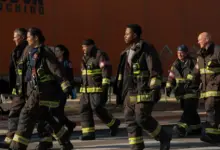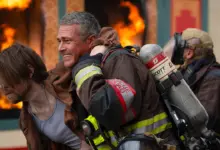The Untold Truth Of The One Chicago Franchise
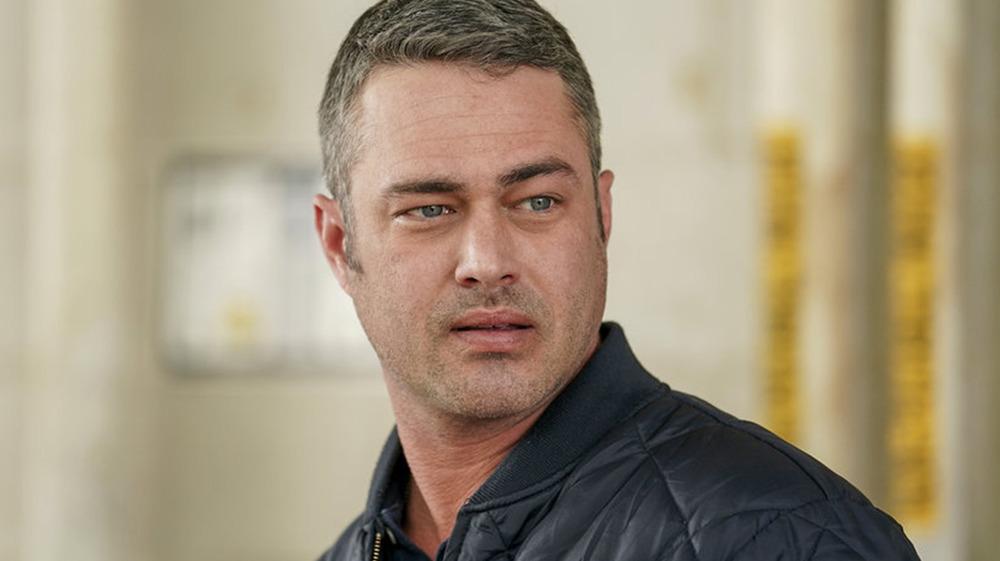
Marvel has its cinematic universe, and DC Comics maintains a superhero web of its own on The CW. But over on NBC, an interconnected saga of procedural dramas about first responders in one of America’s biggest cities has been captivating millions of viewers for most of a decade.
In 2012, Chicago Fire debuted, detailing the harrowing, heroic work and soapy, sappy personal lives of a crew of Chicago firefighters and emergency personnel. In 2014, it generated the spinoff Chicago P.D., focused on a crackling Intelligence Unit. That was all followed by the hospital and medical show Chicago Med, as well as the legal series Chicago Justice. The firefighters, police officers, prosecutors, doctors, nurses, EMT drivers, and more all wind up in each other’s worlds quite often, all in the name of keeping the Windy City safe. NBC refers to the programming universe as “One Chicago,” and here’s everything there is to know about one of the most popular and prolific franchises in TV history.
The One Chicago franchise started when a police show creator wanted to make a firefighter show
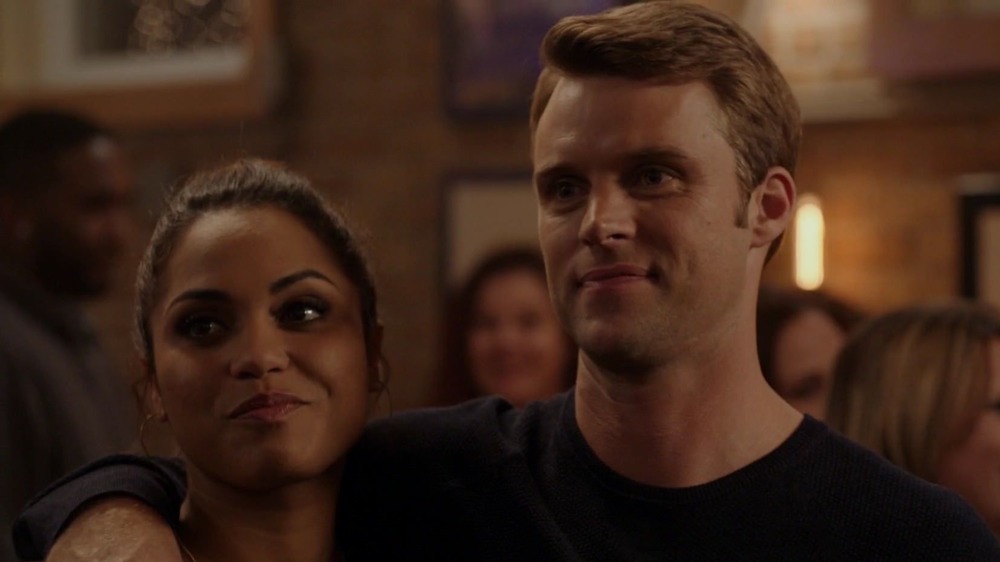
Over a decades-long career, Dick Wolf had brought many shows to television. More often than not, he worked on programs about law and order, like Hill Street Blues, New York Undercover, and, well, Law & Order. In the early 2010s, Wolf aimed to launch a show about big city firefighters, which, unlike series about other emergency personnel like paramedics and police officers, hadn’t been attempted on network television all that often.
Wolf contacted NBC, with whom he had a long-standing relationship thanks to Law & Order, and a call went out to writers Michael Brandt and Derek Haas to develop a pilot, even though the duo had little experience in television. (They’d co-written the films 2 Fast 2 Furious, Catch That Kid, 3:10 to Yuma, and Wanted.) However, their lack of TV acumen was a selling point. “Dick was looking to do something totally different, and they were looking for feature writers,” Brandt told The Hollywood Reporter.
Wolf and NBC liked the pilot, and by 2012, Chicago Fire was in production with a slot on NBC’s primetime schedule. The reason the first of many One Chicago shows was set in Chicago is because it was the perfect locale. According to Brandt, a show about first responders was too touchy for New York because “Sept. 11 is still a big subject there,” while Los Angeles “doesn’t have enough weather” to be dramatic.
The One Chicago shows are linked to a lot more series than just each other
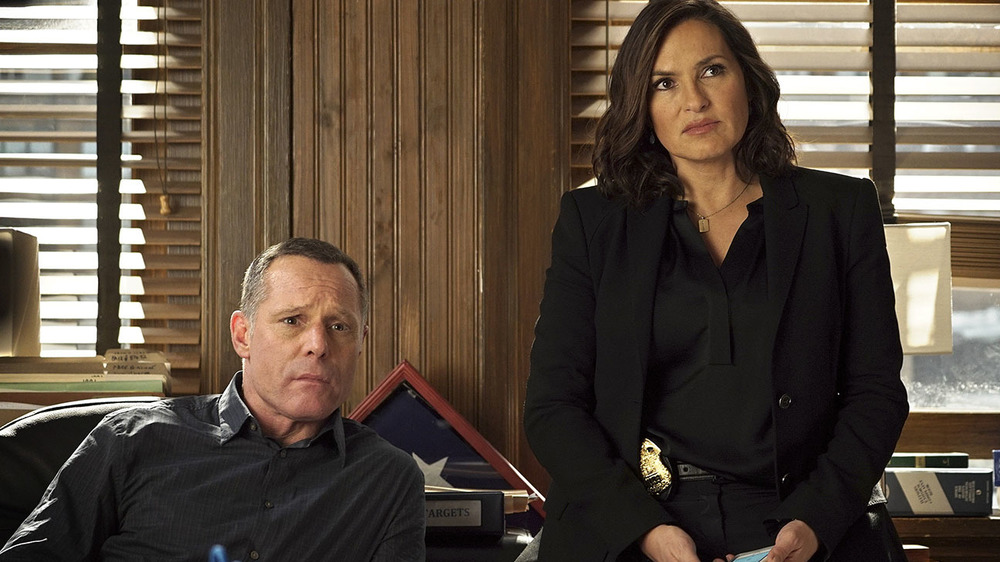
Chicago Fire, Chicago P.D., and Chicago Med are all connected, sharing the same fictional reality under the One Chicago umbrella. Characters from every show frequently pop up in other series, and there’s also the semi-regular crossover events where one big story is told over the course of the entire franchise. In fact, Dick Wolf, the mastermind of One Chicago, has created many other shows, and they all seem to exist in the same plane of existence.
In 2014, Chicago Fire and Chicago P.D. crossed paths with Law & Order: SVU, the second and only remaining element of Wolf’s multi-show, New York-based Law and Order empire. It proved so successful that five months later, all those shows crossed paths again, telling a story that was initially supposed to be a two-part SVU episode. And in 2017, one arson story dominated episodes of Chicago Fire, Chicago P.D., Chicago Med, and the short-lived Chicago Justice, with the legal element presided over by Judge Danielle Melnick (Tovah Feldshuh), a character from the original Law & Order, canceled in 2010.
The crossovers can even transcend the gulf between networks. In 2020, CBS’ F.B.I., a Dick Wolf production, featured Chicago P.D. character Hailey Upton (Tracy Spiridakos) teaming up with that show’s Agent Zidan (Zeeko Zaki) in New York.
There are real firefighters in the Chicago Fire crew
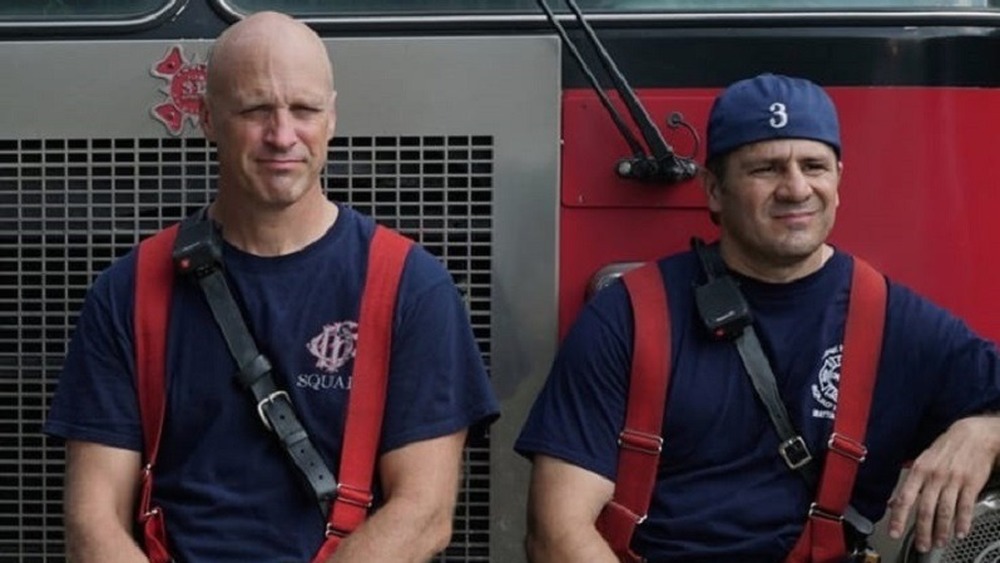
Actor Anthony Ferraris (pictured right) has played Rescue Squad 3 truck driver Tony on all three major One Chicago shows, with over 100 episodes of Chicago Fire and cameos on both Chicago P.D. and Chicago Med. Not only does his character share his name, he shares his profession, too. Ferraris is a native Chicagoan and an active, veteran firefighter. In fact, he wasn’t even a professional actor before he was cast on Chicago Fire in 2012. So how did he land the job?
Well, a friend was told by a firefighters union that the show was looking for extras, and he asked Ferraris to accompany him on the audition. Obviously, Ferraris got the gig. “I guess they liked me,” he told Wolf Entertainment. And quickly, his involvement increased. On the first day of shooting, the crew discovered that none of the actors cast as firefighters could drive the emergency vehicles. “The show’s technical advisor, who I’ve known for years, asked me if I would drive. I said sure, and that’s pretty much how it all went down.” After a half-dozen episodes, co-creator Derek Haas told Ferraris he was going to start writing lines for him.
That technical advisor who got Ferraris into the spotlight? That was Steve Chikerotis, a Chicago firefighter who’s also appeared in more than 20 episodes of Chicago Fire, along with helping to write and serving as an associate producer.
Why Chicago P.D. lost Sophia Bush
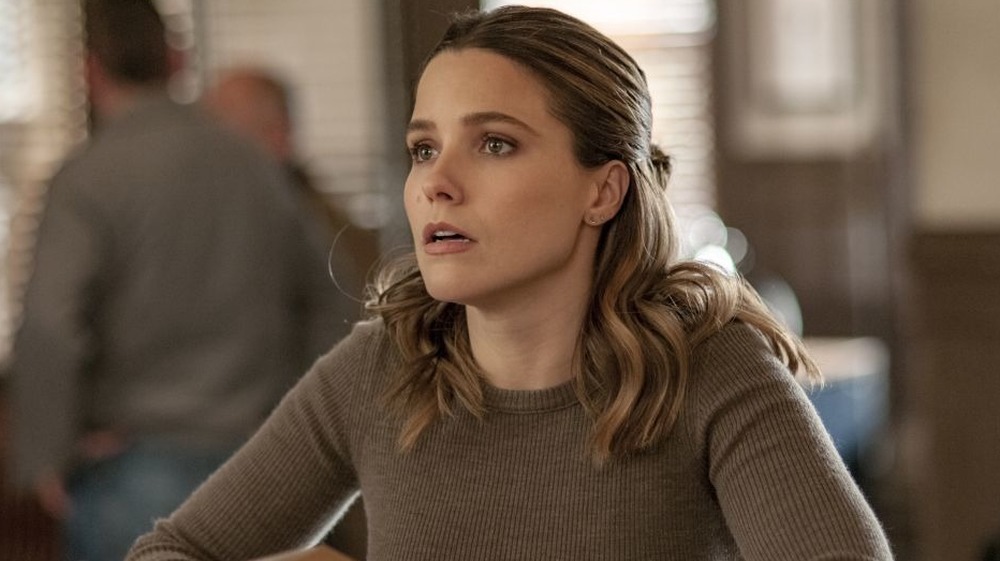
Alongside Jason Beghe as morally ambiguous Intelligence Unit chief Hank Voight, Sophia Bush was the star of Chicago P.D. at its beginning in 2014. The most recognizable member of the cast thanks to her time on the hit teen soap One Tree Hill and being the center of the show’s promotional campaign, Bush portrayed the complicated Erin Lindsay, a former juvenile offender who becomes a police informant before working her way up to Chicago police detective. At the end of the fourth season of Chicago P.D., Det. Lindsay abruptly left her hard-won position, accepting a spot with the FBI’s counterterrorism squad in New York City so as to shield her mother, the subject of a murder investigation.
In reality, Bush’s character was written out because the actor had decided to leave Chicago P.D. The reason? As she told Dax Shepard’s Armchair Expert podcast (via Deadline), Bush found the show’s working conditions to be deplorable. “It was a consistent onslaught barrage of abusive behavior,” she said, adding that her body was “falling apart” over her consistent unhappiness. Working on location through intense Chicago winters didn’t help matters, either. At first, producers wouldn’t let Bush out of her contract, so she played hardball, threatening to sue to get out of it or go public with her criticisms in a New York Times op-ed. And that seemed to do the trick.
Why Oliver Platt agreed to star on Chicago Med
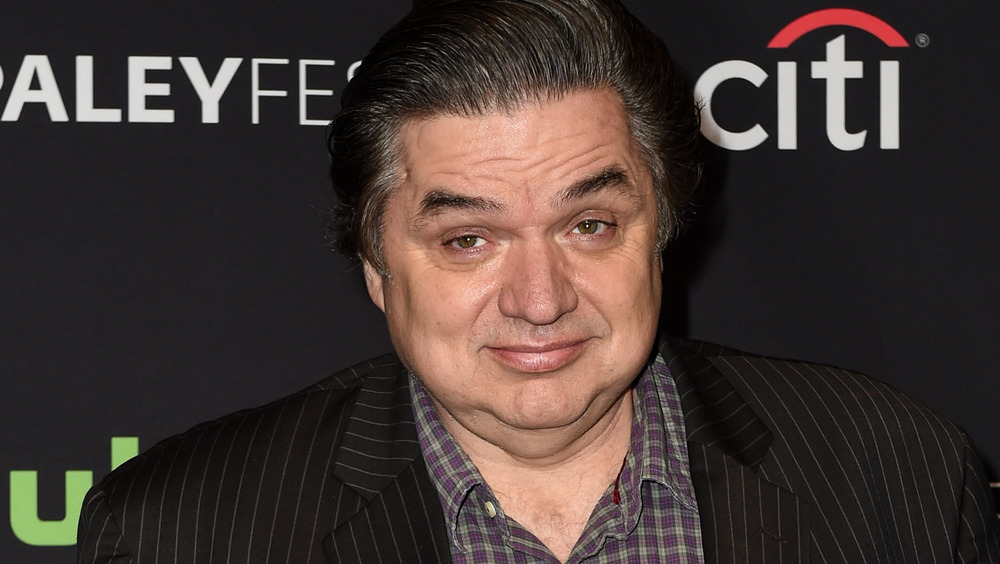
Oliver Platt is among the most acclaimed American actors of his generation, lauded for performances on the small screen, big screen, and Broadway. He’s been nominated for four Emmy Awards for his work on Huff, The West Wing, and Nip/Tuck. Plus, he received various nods for his appearances in Frost/Nixon, Please Give, and Casanova, and he was a Tony Award nominee in 2006 for the play Shining City.
And yet the thing for which he’s best known and has been the most visible is Chicago Med, a medical procedural drama that serves as weekly comfort viewing for millions. How did a seemingly too-good-for-network-TV actor like Platt wind up doing network TV? It’s all owing to his connection with One Chicago architect Dick Wolf, solidified over another TV show that didn’t succeed.
“Dick and I did another show together way back in 2000,” Platt told The Hollywood Reporter, referring to Deadline, a 13-episode newsroom drama created by Wolf. “Dick and I formed a very real friendship and I have a tremendous respect for Dick as a producer.” About 15 years after Deadline died, Wolf approached Platt with the role of Dr. Daniel Charles on the burgeoning Chicago Med, and the actor accepted.
Chicago Justice is the franchise’s only true flop
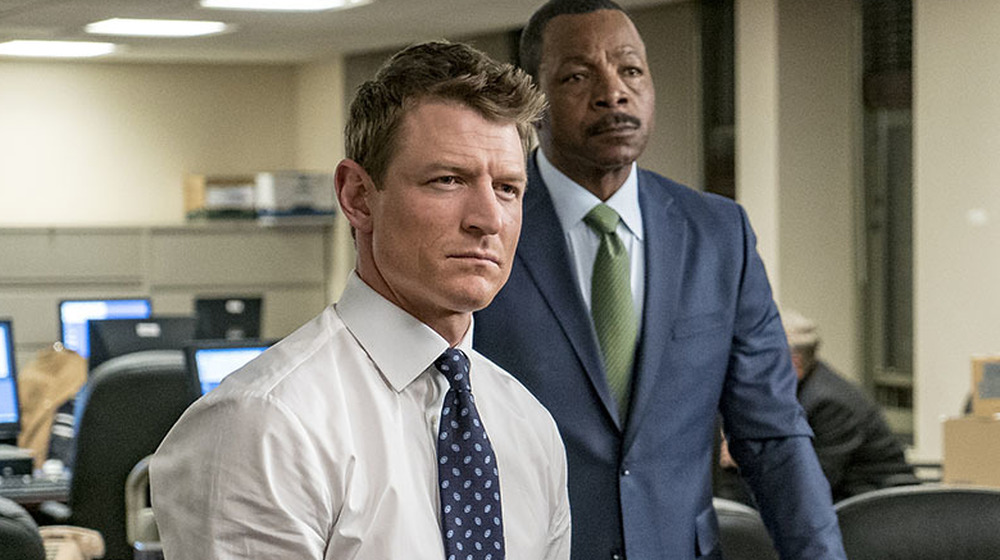
While Chicago Fire, Chicago P.D., and Chicago Med can all stand alone as entertaining and action-packed shows, NBC lumps the connected series together and airs them in succession on “Chicago Wednesdays.” That’s one full night of shows, and, it would seem, about as much Chicago drama that the marketplace can hold or audiences can tolerate.
On March 1, 2017, NBC debuted Chicago Justice, the fourth entry in producer Dick Wolf’s One Chicago saga about Windy City public servants and first responders. The courtroom drama bore some similarities to the “order” portion of Wolf’s long-running Law & Order, as well as some connections. Lead character and prosecutor Peter Stone (Philip Winchester) was the son of Law & Order attorney Ben Stone (Michael Moriarty).
Chicago Justice settled into its run as a midseason replacement after premiering as the tail end of a three-show crossover with Chicago Fire and Chicago P.D. Despite its link to those hit series (and exploiting any lingering fondness for Law & Order), Chicago Justice was one One Chicago series too many. After just 13 episodes were met with much lower ratings than those of its sister series, NBC sent Chicago Justice away.
A lot of drama went down before Chicago Med hit the air
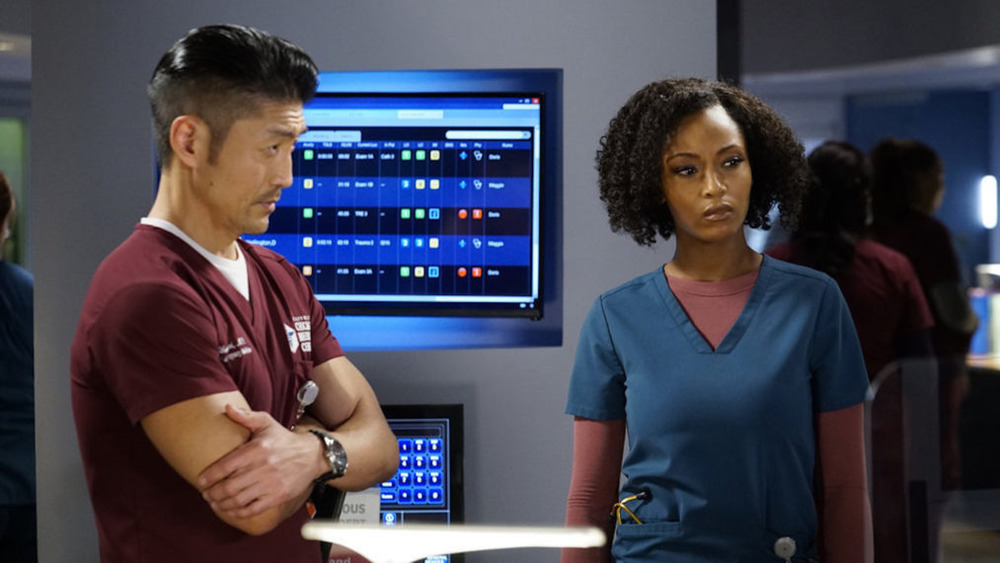
Once One Chicago producers decide to make a spinoff, they generally do so efficiently. First, they’ll create a “backdoor pilot,” meaning the characters from the new show dominate an episode of the old show, thus giving audiences a taste of what’s to come when the spinoff proper debuts a few months later. For example, Chicago P.D. originated as a Chicago Fire episode in May 2013, leading to its January 2014 debut. And Chicago Justice started off as a Chicago P.D. episode in May 2016, prior to its series debut in March 2017.
In contrast, Chicago Med’s rollout was a lot more complicated and a lot more rushed. The April 2015 Chicago Fire installment “I Am the Apocalypse” introduced Chicago Med’s premise, and the standalone show premiered just seven months later.
It was actually set to debut in early 2016, but then NBC fast-tracked it for a fall debut after the medical drama Heartbreaker was suddenly postponed due to the pregnancy of star Melissa George. Then in August, Med star Laurie Holden abruptly quit the show, citing “family reasons” in a statement (via The Hollywood Reporter). Days later — and mere weeks before filming was set to begin — showrunner Andrew Dettmann left over creative clashes with production company Universal Television. Remaining overseers scrambled to replace the cast and crew, bringing in actors Torrey DeVitto and Rachel DiPillo to make up for Holden’s absence, as well as hiring Andrew Schneider and Diane Frolov to fill Dettmann’s role.
A Chicago Fire setup was mistakenly reported as real news
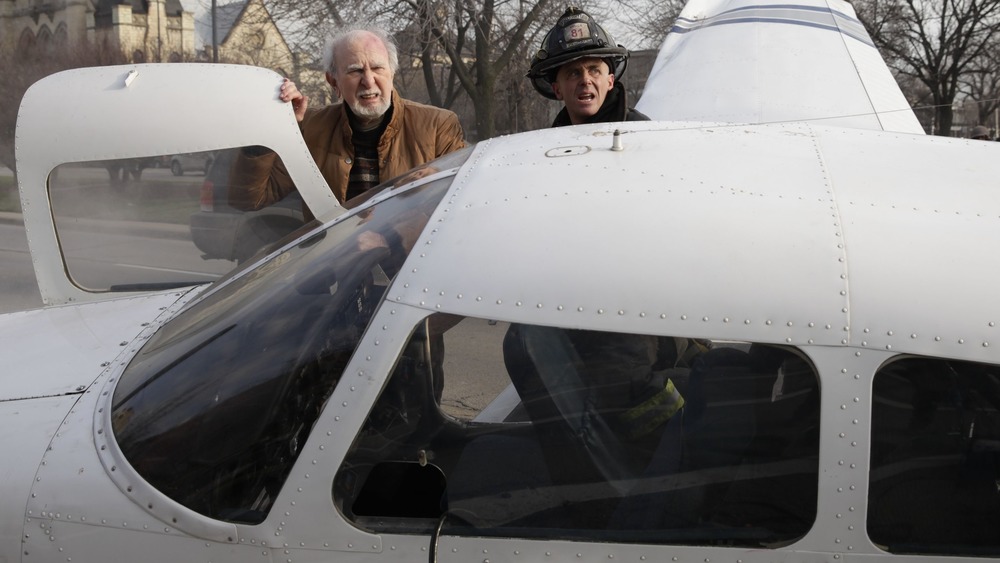
One day in December 2012, local Chicago program WGN Morning News (via The Hollywood Reporter) carried a harrowing and startling story about a plane crash within city limits. With overheard footage obtained by its helicopter team, WGN aired video of the wreckage, depicting a small, downed plane on the corner of Chicago’s 29th Street and Martin Luther King Drive, also reporting that roads around the site of the accident had been closed to traffic.
A tragedy for sure, but it turned out to have a happy ending — in terms of loss of life, not so much for journalism or public relations sectors. A few moments after delivering the news of the plane crash, anchors Larry Potash and Robin Baumgarten issued an update. The plane crash wasn’t a real crash at all, merely a simulated one. As it turns out, it was a setup for a scene in Chicago Fire, the NBC procedural series that had only just recently begun shooting its first season in the Windy City. (The episode in question was “Under the Knife,” in which a confused old man crashes a single-engine plane into a minivan.) “Are you kidding me? They might want to tell the news folk when they’re doing this and shutting down King Drive,” an irate Baumgarten said on the air. “Just to be clear, the other stories in that news block were real. Just the last one, not so much,” Potash added.
Brian Geraghty left Chicago PD thanks to a unique arrangement
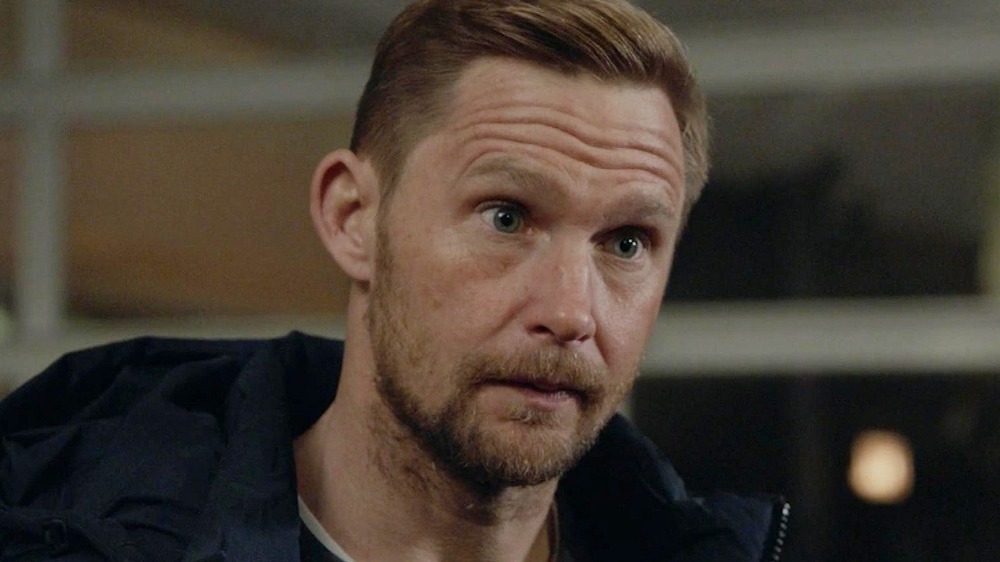
People contain multitudes, and that certainly held true for Chicago P.D.’s Sean Roman. Something of a hothead, the patrol cop was also a serial romantic, transferring to the 2-1 after becoming romantically involved with a fellow officer, which he’d do again in his new workplace. At the end of Chicago P.D.’s third season, it looked like Officer Roman was a goner after he was shot in the line of duty. However, he somehow survived but still disappeared from the show after choosing to quit the force and move away to San Diego rather than be relegated to semi-active police duty.
As Sean Roman left the Chicago P.D., so too did actor Brian Geraghty leave Chicago P.D. The premature departure may have taken fans by surprise, but it was a long time coming. In fact, it was more or less something Geraghty asked for when he signed on to do the show. Executive producer Dick Wolf so envisioned Geraghty playing Roman that he was willing to make some concessions. Geraghty “is the most level-headed, decent human being you’re going to encounter, and he’s upfront,” showrunner Matt Olmstead told TVLine. “He was like, ‘I don’t know if I can commit to a seven-year contract,” which is a television industry standard for actors. Wolf gave Geraghty a year-to-year deal, so the actor “could leave the show when he felt it was time to move on.”
None of the One Chicago shows were immediate hits
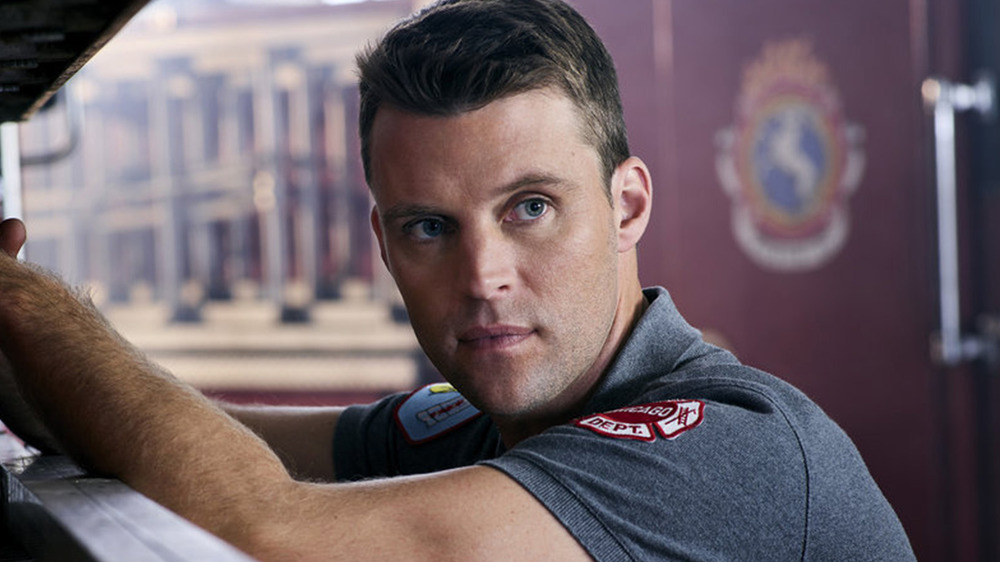
NBC gives over a lot of its primetime schedule each week of the regular season to Dick Wolf’s One Chicago franchise — three hours (an entire night of programming). That’s a substantial commitment to a franchise that hasn’t always proven to be a popular or profitable endeavor. Despite how procedural shows are usually a safe bet for networks (witness the success of NCIS and Law & Order shows), none of the three extant Chicago series were hits right out of the gate, even the ones that were launched on the backs of previous Chicago shows that had evolved into hits.
Chicago Fire debuted in fall 2012, and it finished its first season as only the 51st most-watched show on network TV. NBC renewed it and used it to launch the police-centered spinoff Chicago P.D. in January 2014, which finished its first season at #61. Chicago Med did a little better in its inaugural season, finishing at #37 in the 2015-16 television season.
But NBC stuck with the shows, letting the cast and creative staff find their voice and allowing time for an audience to build. It worked. In the 2019-2020 season, all three parts of One Chicago ranked near the top of the Nielsen TV ratings. Chicago Fire came it at #7, followed by Chicago P.D. and Chicago Med tied at #10. In terms of total average viewers, One Chicago draws more people than CBS’ multi-program NCIS juggernaut.
One Chicago will address police reform
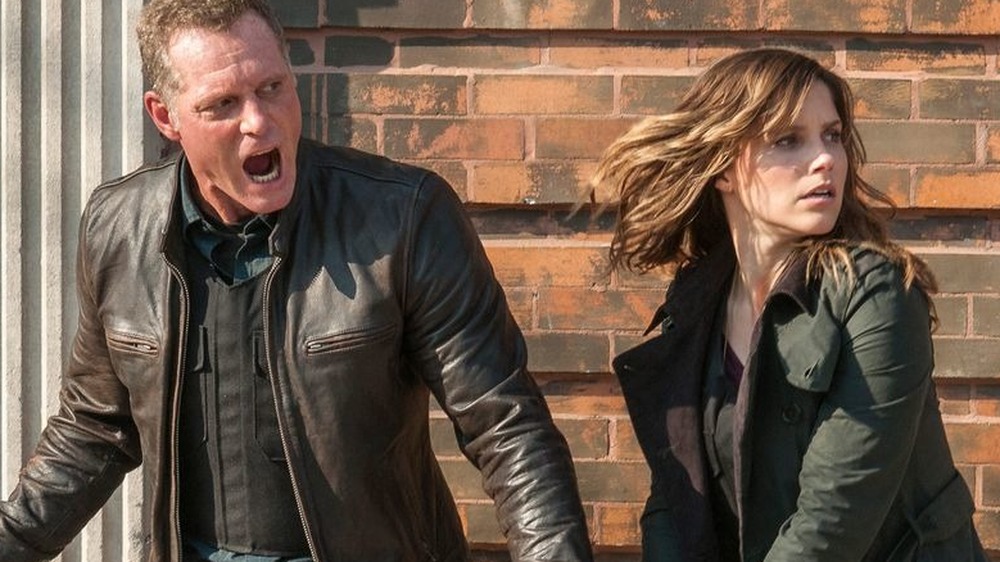
The 2020 deaths of George Floyd and Breonna Taylor at the hands of police officers in Minnesota and Kentucky set off an international wave of civil rights protests not seen in the U.S. since the 1960s. While Americans publicly and privately grappled with questions of systemic racism, law enforcement overreach, and police brutality, it left the entertainment industry in a strange place. Long a hallmark of television, programs that celebrated or glorified police suddenly felt dated at best and totalitarian at worst. Law enforcement reality shows Live P.D. and Cops were quickly canceled, and several cast members — both past and present — of NBC’s law enforcement-heavy One Chicago franchise publicly supported police reform and the Black Lives Matter movement.
Those actors may have ultimately forced the hand of their bosses to address the issues on their purportedly gritty, realistic, and ripped-from-the-headlines TV series. Also spurring action, civil rights advocacy group Color of Change co-authored a 2020 study called “Normalizing Injustice,” which argued that TV shows – Chicago P.D. in particular — normalize police misbehavior. So in September 2020, Nicole Ari Parker joined the cast of Chicago P.D. as Deputy Superintendent Samantha Miller, a police reform advocate who comes to Chicago to assist Voight (Jason Beghe) and his team follow strict new police protocols.

